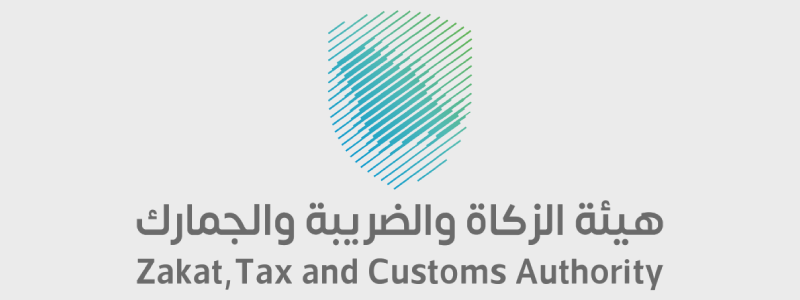
Pioneering Saudi Arabia’s First Tax System: ZATCA’s Historic TransformationAn unprecedented change
In a historic transformation that marked Saudi Arabia’s first-ever implementation of taxation, the Zakat, Tax and Customs Authority (ZATCA) embarked on an unprecedented journey in 2018. The introduction of Value Added Tax (VAT) wasn’t just another regulatory change – it represented a fundamental shift in the Kingdom’s fiscal policy and citizen engagement. This case study explores how ZATCA, supported by our team, successfully pioneered the nation’s first tax collection system, creating a robust digital infrastructure that would forever change Saudi Arabia’s revenue management landscape.

As Saudi Arabia took the momentous step of introducing taxation for the first time in its modern history, ZATCA faced a challenge of extraordinary magnitude. This wasn’t simply about upgrading existing systems – it was about creating an entirely new fiscal infrastructure in a nation where taxation had never existed before. The stakes were unprecedented: ZATCA needed to process over 70,000 bills per hour in a country where citizens had no prior experience with tax payments. The existing payment platform, limited to 10,000 transactions daily and plagued with reliability issues, was clearly inadequate for this historic transformation. With just three months until this landmark implementation, the pressure was immense to deliver a solution that would shape the future of Saudi Arabia’s economic landscape.
This groundbreaking initiative carried three fundamental imperatives: first, to build a robust and scalable platform capable of handling the Kingdom’s first-ever tax transactions; second, to ensure the system was intuitive and accessible for a population experiencing taxation for the first time; and third, to establish a future-proof foundation that could adapt to evolving regulatory requirements. The success of this project would not only determine the effectiveness of Saudi Arabia’s first tax system but would also play a crucial role in the Kingdom’s broader economic diversification goals under Vision 2030.
With the goals set, the ministry, ZATCA faced an unprecedented challenge in establishing the nation’s tax infrastructure from scratch with
- Critical system limitations in the current payment platform :
- Existing payment platform restricted to 10,000 transactions per day
- Frequent server outages causing significant system downtime
- Unresponsive vendor unable to support critical operational needs
- Projected requirement to process over 70,000 bills per hour – a dramatic increase from existing capacity
- Only three months until the mandatory go-live date of January 1st, 2018
- Integration and compliance demands:
- Mandatory seamless integration with existing VAT generation systems
- Complex requirements for multiple payment processing channels
- Need for minimal disruption to existing operations during implementation
- Requirement for system flexibility to accommodate future regulatory changes
- Technical Complexities:
- Need for comprehensive scalability to handle the projected transaction volume
- Development of robust payment processing workflows
- Implementation of secure integration protocols with multiple government systems
- Establishment of reliable monitoring and reporting capabilities
- Creation of disaster recovery and business continuity procedures
This transformation represented not just a technological upgrade, but a foundational change in Saudi Arabia’s Fiscal infrastructure, demanding a solution that would be both immediately effective and future-proof.
Our team delivered a comprehensive and strategic solution tailored precisely to ZATCA’s complex requirements, focusing on creating a robust, scalable, and compliant payment platform.
Technical Architecture
- Designed to process over 70,000 bills per hour, validated through rigorous performance testing
- Custom integrations ensuring seamless connectivity with ZATCA’s VAT generation system
- Minimal disruption strategy during system deployment
- Flexible architecture capable of adapting to evolving regulatory requirements
Payment Ecosystem Enhancement
- Implementation of Point of Sale (POS) payment capabilities
- Expanded payment options for taxpayers
- Introduction of eCommerce payment methods
- Comprehensive electronic bill presentment and payment (EBPP) system
Regulatory Compliance Mechanisms
- Swift implementation of EFAA penalty upload functionality
- eInvoicing compliance aligned with Saudi regulatory standards
- Robust systems ensuring full operational and legal adherence
Phased Rollout Strategy
- Initial go-live with EBPP for core VAT payments in January 2018
- Subsequent introduction of additional payment channels throughout the year
- Incremental feature deployment to ensure system stability and performance
The solution represented a holistic approach to digital transformation, addressing immediate operational needs while creating a future-ready tax infrastructure for the Kingdom.
The result of the hard work put in by the client and our team together resulted in a system that has performed exactly as per the requirements with a 99.9% uptime and 0% unintentional downtime.
Performance Metrics
- Successfully delivered the platform on time, ensuring VAT readiness by January 1st, 2018
- Platform now processes millions of transactions daily
- Achieved exceptional reliability with 99.9% uptime
- Zero unscheduled downtime throughout system’s operational lifecycle
Regulatory Compliance
- Full compliance with all regulatory requirements
- Demonstrated ability to meet strict government regulatory deadlines
Taxpayer Experience
- Introduction of POS and eCommerce payment options
- Significantly enhanced taxpayer convenience and payment flexibility
- Simplified first-time tax compliance for Saudi citizens
Operational Transformation
- Centralized revenue management system
- Comprehensive visibility and control over payments, penalties, and collections
- Established a robust digital infrastructure for Saudi Arabia’s first tax system
The implementation transcended a mere technological solution, fundamentally reshaping ZATCA’s operational capabilities and setting a new standard for digital government services in the Kingdom. We are proud and happy to be working on this challenging and rewarding experience with the ministry with us implementing new regulations and systems every year.
